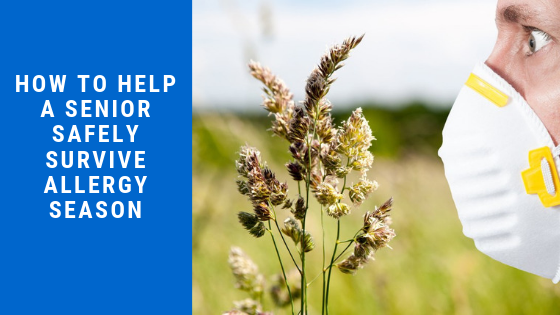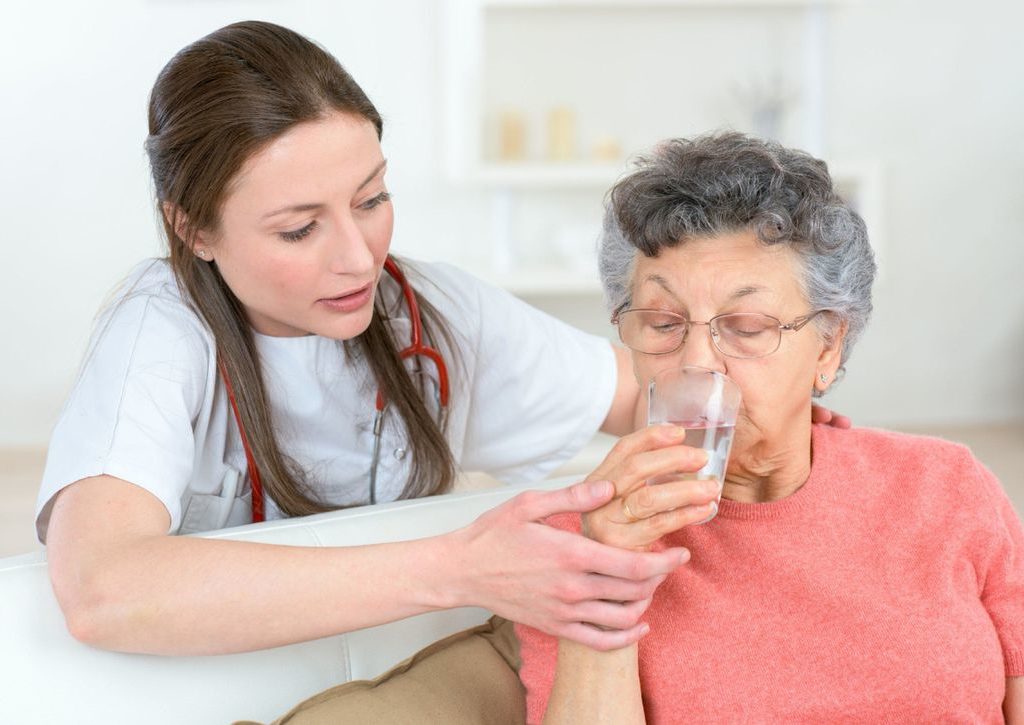
The spring months are a great time to get your aging loved one out and active. However, seasonal allergies can quickly put a damper on things. While allergies may not top the list of dangerous senior conditions, many seniors do experience some level of discomfort as the result of the increased amount of pollen in the air. If you provide care for an aging loved one, it is important to be aware of the causes and appropriate treatments for seasonal allergies to ensure his or her safety and overall health.
Unfortunately, tulips and daffodils aren’t the only things that make their return in the spring. Pollen-producing plants also bloom. For seniors who have allergies, itchy eyes, a fever, and a stuffy nose often result. Cardiac and pulmonary conditions can also worsen as the pollen count rises.

In fact, a growing number of seniors are developing allergies for the first time in older age. Though allergies are best known for affecting children, rates of adult-onset allergies are skyrocketing. It’s not uncommon for an adult over age 75 to be diagnosed with allergies for the very first time in his or her life.
Symptoms to Watch For
Common allergy symptoms can include but are not limited to runny nose, sneezing and itchy and/or watery eyes. While caregivers may notice that their aging loved one is experiencing discomfort, many attribute these symptoms to other conditions with similar symptoms such as a cold or sinus infection. Other symptoms that are more difficult to detect may also include sleepiness, shortness of breath and headache. If your aging loved one seems to be having difficulty adjusting to the warmer spring weather, be sure not to rule out seasonal allergies. This is especially important for seniors who require specialty dementia care, and are not able to communicate the extent of their symptoms.
Treatment Options
As you may know, there are a number of over-the-counter products designed for seasonal allergies. While they may seem like an easy fix, these products can put a senior’s health at risk. Many contain ingredients that negatively interact with common senior medications, resulting in several problems such as dizziness and elevated blood pressure. Many experts actually recommend taking a proactive approach to reducing or eliminating seasonal allergies, without medications. In the event that allergies are severe, caregivers should always consult with the health care provider prior to medicating.
For seniors, allergies pose a higher risk than for any other age group. Allergies can complicate other chronic medical conditions, including asthma and Chronic Obstructive Pulmonary Disease (COPD). What’s more: the most common medication for allergy relief contains antihistamines, which are potentially dangerous if taken with blood pressure medication. Antihistamines can cause drowsiness and dizziness which could increase fall risk or risk of injury.
 Prevention/Management of Symptoms
Prevention/Management of Symptoms
There are several ways to prevent and manage seasonal allergy symptoms for the senior. Common tips include avoiding outdoor activities when pollen counts are high, closing windows at night, cleaning or replacing air filters regularly, and in some cases, using a mask when going outside. When symptoms are present, a warm shower or a home dehumidifier can be of great help.
It is also important to understand that seasonal allergies may be pose problems for your loved one now, even if they’ve never shown any symptoms. By understanding this, you will be able to properly diagnosis the problem and can avoid medicating incorrectly which could lead to other health risks. With this new information in hand, get out and enjoy the sunshine with your aging loved one!











Leave a reply